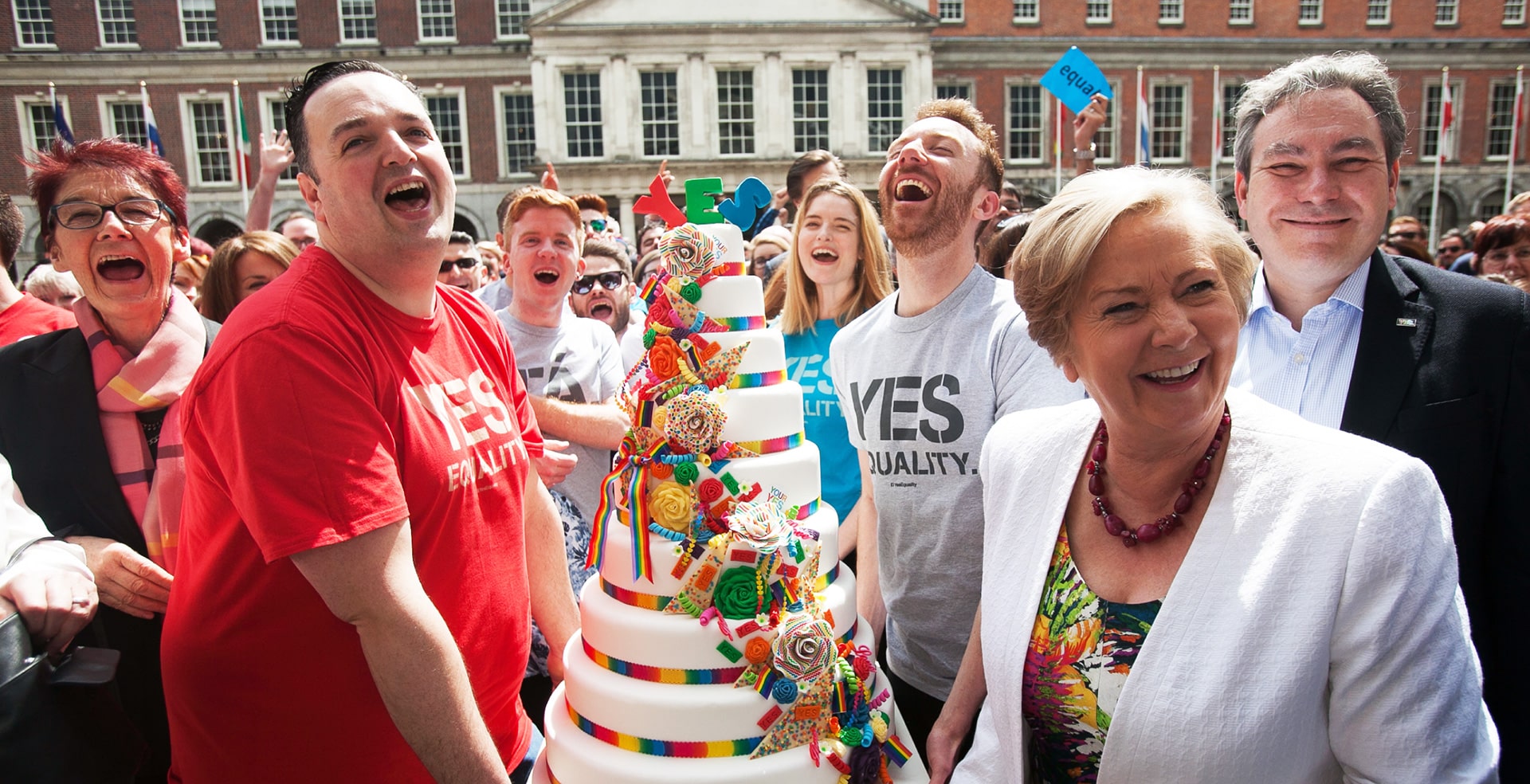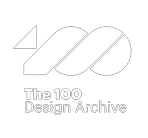Yes Equality Campaign
Today, same sex couples have the right to marry, to adopt children, and to live together in Ireland without stigma. However, these significant gains are very recent, and do not represent the experience of many people around the world. In 2015, Ireland became the first country in the world to legalise same sex marriage through public referendum.
As of 2020, only 28 (out of 194) countries in the world have legalised same sex marriage. In many countries worldwide, gay people are still treated as second class citizens. In Russia, a constitutional ban on same sex marriage has been passed by referendum, a reflection of the hostile anti-LGBT environment in Russia as a whole. Even more extreme examples of anti-gay legislation exist in countries such as Nigeria, Uganda and Saudi Arabia, where being gay is a criminal offence, sometimes punishable by death. Even in countries we might consider more progressive, such as Japan, marriage between same sex individuals is still illegal.
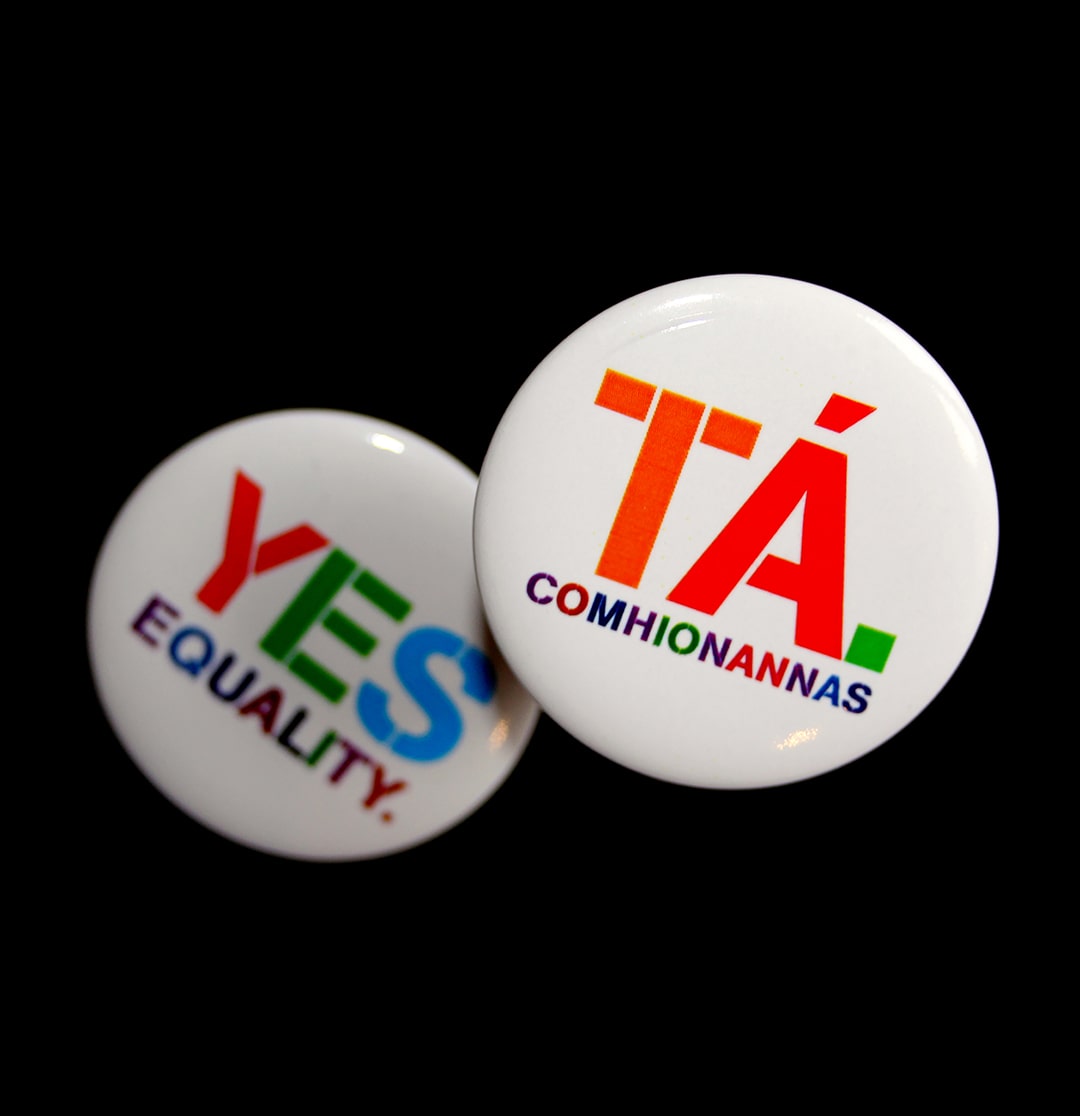
Context
Ireland endured generations of sexual and social repression under the Catholic Church until very recently. Equality and change didn’t happen without the courage, commitment and campaigning of many individuals and organisations. Homosexual sex was only decriminalised in 1993.
In 2010 Ireland passed a civil partnership bill, pushed ahead by the tireless campaigning of the Gay and Lesbian Equality Network (GLEN). While civil partnerships were a step in the right direction, they did not afford gay couples the same equality as heterosexual couples either in law or, significantly, in our culture. For full equality in law and in society, Marriage Equality and the Irish Council for Civil Liberties (ICCL) joined GLEN to campaign for a public referendum on civil marriage equality.
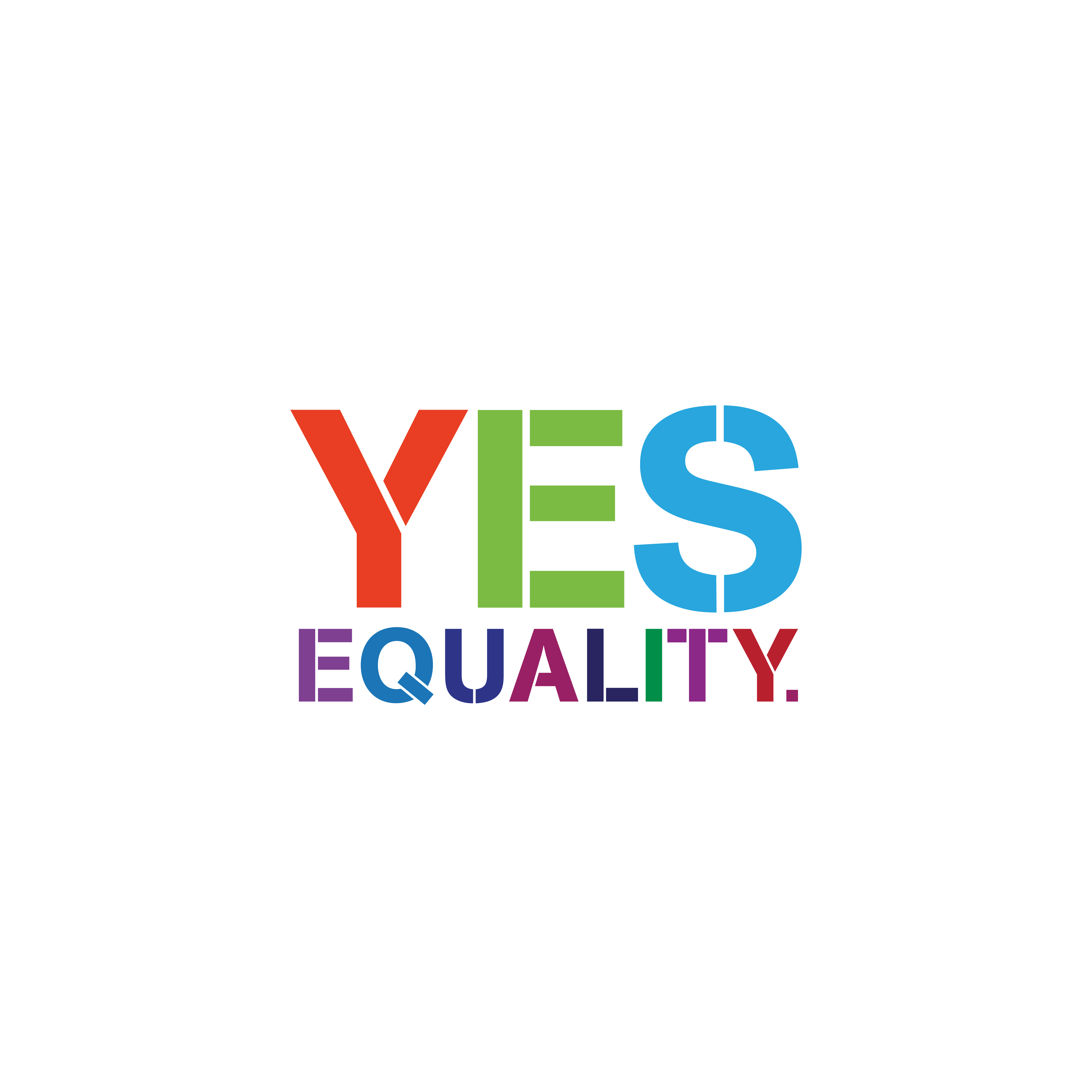

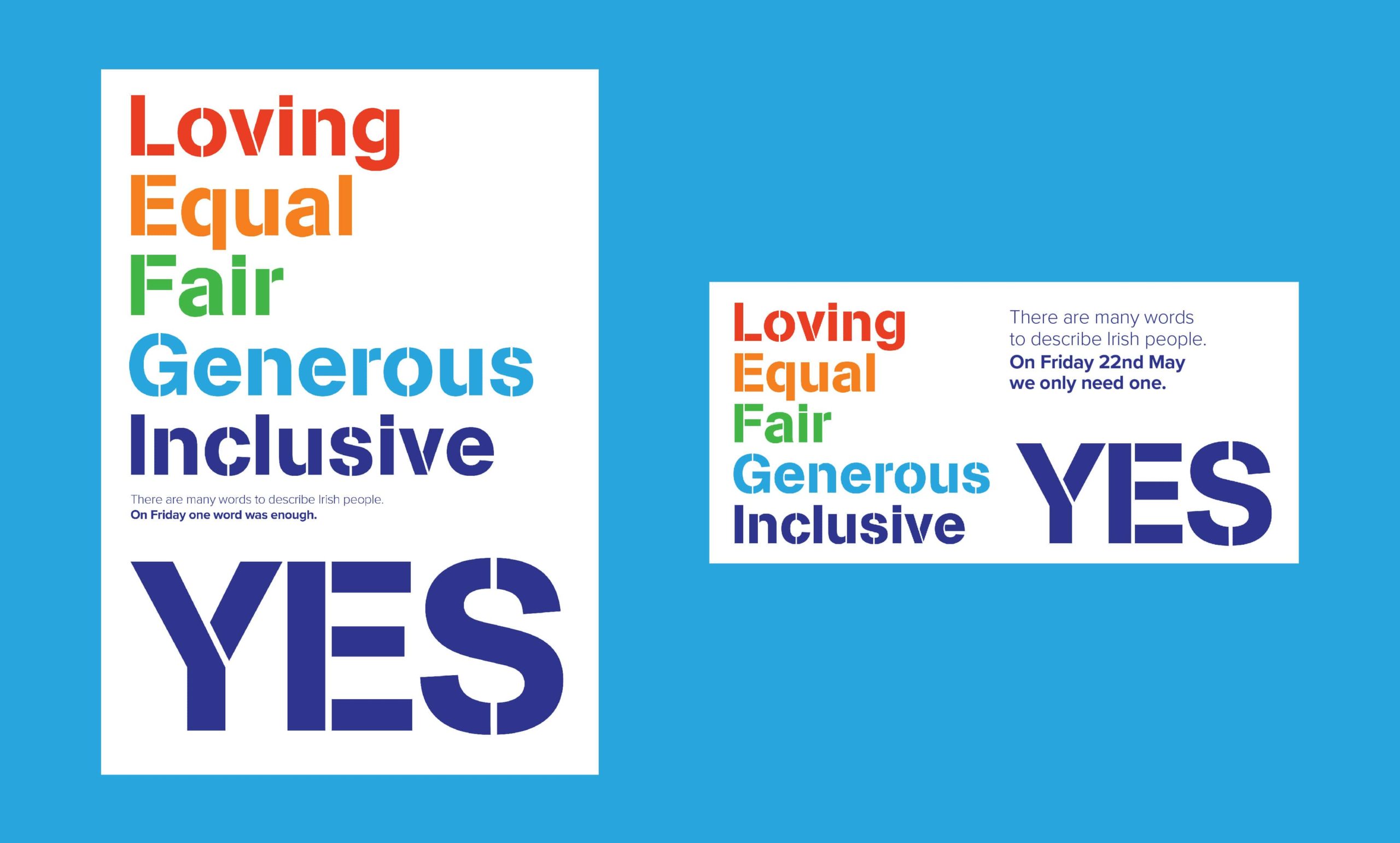
Yes Equality
Based on qualitative research commissioned by GLEN, Language created a campaign strategy that recognised the importance of family in Irish life. In Irish society, marriage is not only a marker of love and commitment in a relationship, but it is also a recognition of the importance of community, family and friends to that relationship. Far from being an abstract ‘institution’, marriage is a living, breathing part of our culture and our values. It belongs to the people.
Recognising lesbian and gay relationships as equal in our constitution would make marraige more fitting for the love, kindness and solidarity at the heart of Irish families. The relevance of marriage equality reached beyond the rights of a minority. The lack of recognition of one of us is an injury to all of us. This campaign was about the Ireland people wanted – free of shame and repression.
This was a campaign of values as well as a matter of individual freedoms. In Ireland we had fought hard for our freedoms and values. Now was the time to shed the vestiges of our dark past, enable a new generation to engage politically and reshape our constitution.
These ideas were expressed in the name ‘Yes Equality’. This was a call for Irish people to stand up for our collective recognition that equality benefits everyone. ‘Yes to equality’ would be a statement every Irish person could respond to, and a principle every person would stand up and vote for.
‘At that moment the campaign identity that the three groups had been striving to visualise was born. There it was, as a badge that was to become iconic, in a typeface that was to be adopted and used all over the world. ‘Yes Equality’ looked and felt right. It did not identify the campaign as lesbian, or gay, or LGBT, but identified it as the collective values of Irish people. It would not be about ‘them’ lesbian and gay couples, isolated, apart from, not fully integrated with their broader families and communities. This campaign would create an identity in which everyone could see themselves and the values they would be happy to stand up and vote for.’
Ireland Says Yes: Gráinne Healy, Brian Sheehan and Noel Whelan
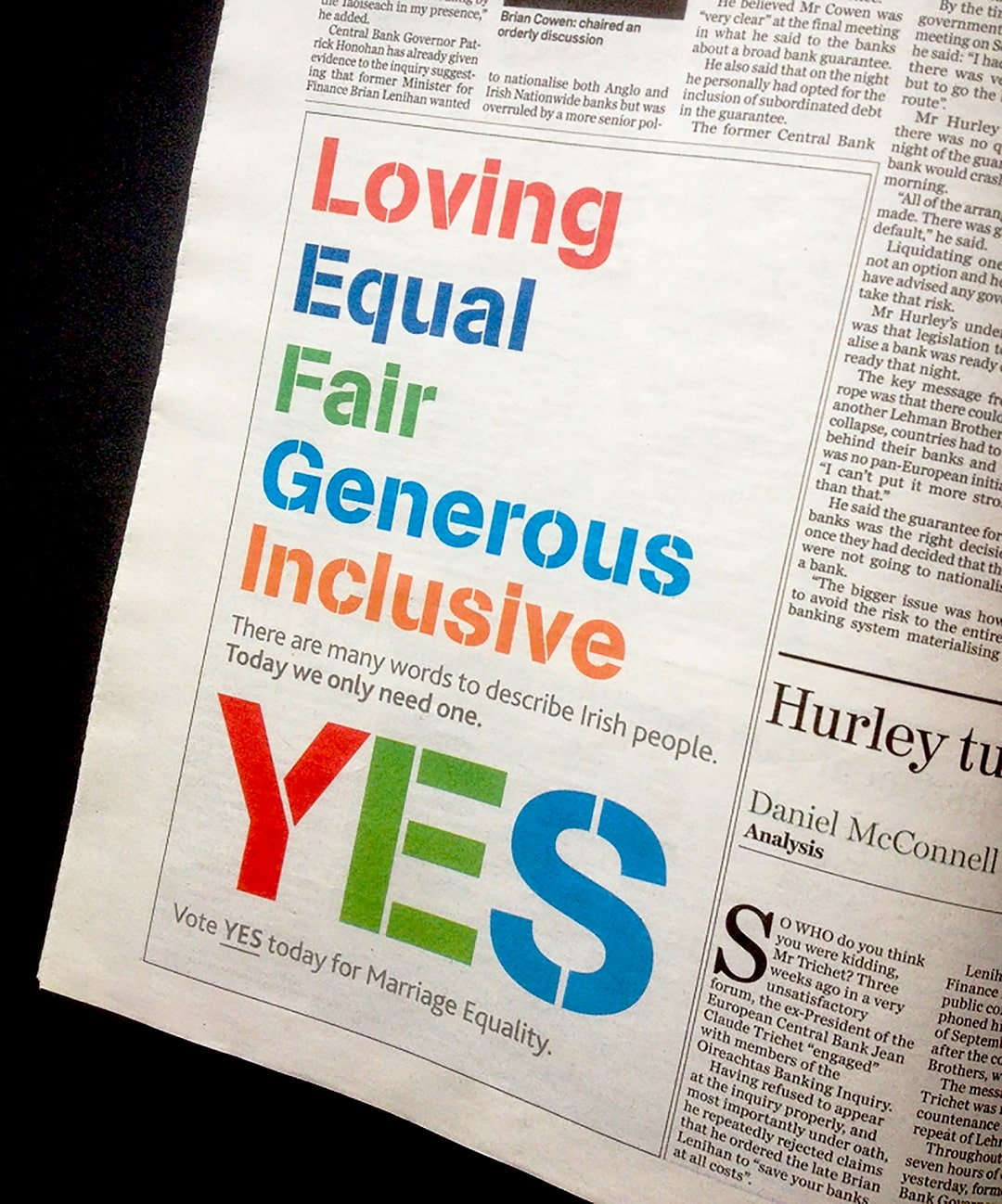
The Campaign
In order for the referendum to be a success, Marriage Equality, ICCL and GLEN would need to build Yes Equality into a national grassroots civil society campaign. This would activate the potential of local groups, organisations and individuals to influence others, and enable them to use their own voices to campaign for the change that mattered to them. The campaign ran in three phases:
- Registration – Led by students unions in the autumn of 2014, this encouraged young people who may never have voted before to register to vote before the October cut-off.
- Pledge to Vote – Prior to the referendum being formally announced, this phase inspired people to pledge to vote yes, and make that pledge known in an effort to influence their social circle and show their support for the movement.
- Your Yes Matters – This was the last phase in the immediate run up to the referendum. This gave a final push to get voters in polling booths on the day of the vote, showing them that every yes vote was absolutely vital. This was accompanied by the unique and extraordinary home to vote phenomenon.
This three-phased campaign resulted in a level of engagement and participation never seen before in a political campaign. Register to Vote was widely adopted by Student’s Unions, political parties and civil society organisations, in addition to the thousands of individual volunteers and canvassers. The voter registration campaign took off across social and traditional media, with celebrities such as Gay Byrne, Colin Farrell, Hozier and the Rubberbandits publicly pledging their support. In the later stages of the campaign it was the personal stories from families of lesbian and gay people that became the most significant part of the public narrative.
I'm voting Yes, Ask Me Why.
In 2015 Ireland became the first country in the world to legalise gay marriage by popular vote. The referendum passed with 62% of the vote and a majority in 43 of the 44 electoral constituencies in Ireland.
The referendum campaign transformed the political landscape in Ireland with a new generation of politically engaged young people participating in societal change. The campaign resulted in a record number of volunteer canvassers, young voters and general voter turnout. It was also Ireland’s most successful register to vote drive with over 20,000 new voters enrolled in advance of the public vote. As younger people are typically the demographic least likely to vote, their support for this referendum was considered instrumental to its success.
This proved to be a pivotal moment for Irish society, a moment when a majority in all the towns and villages in Ireland stood up for the values we believed in and the type of country we wanted to live in. The success of this referendum would also pave the way for the subsequent referendum in 2018 on abortion {link to case study}, and gave a new generation a sense of the power of values and votes in participative democracy.
